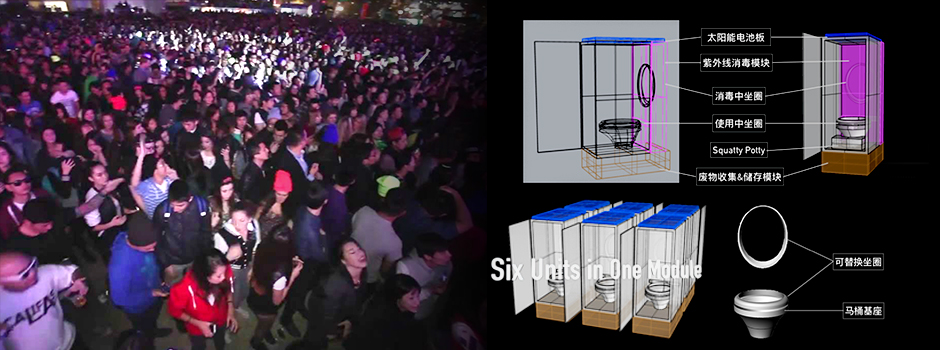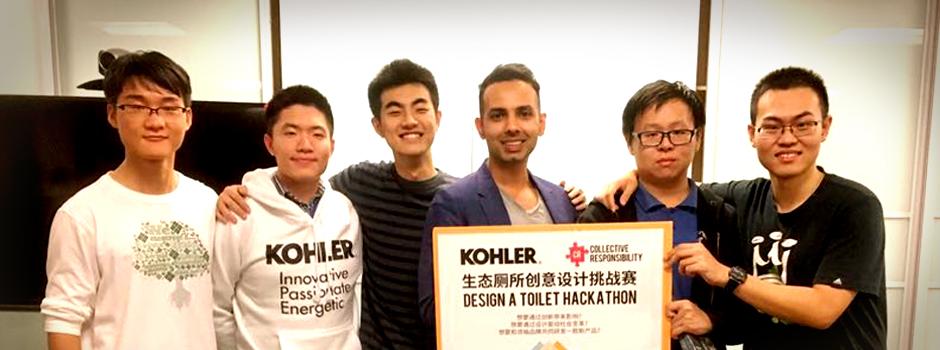In mid-November, a group of NYU Shanghai sophomores beat peer contestants to claim the first prize of a 24-hour hackathon, which sought to design a new type of “off-grid” toilet without connection to water, electricity or sewage systems.
Sponsored by Kohler, a leading bathroom brand and Collective Responsibility, the contest on November 18 attracted eight student teams from six top Chinese universities. Students were required to create an environmentally sustainable toilet solution overnight for a specific user group – ranging from migrant workers to taxi drivers.
After an intensive night of brainstorming, researching, creating prototypes and designing presentations, the NYU Shanghai team, led by Business & Finance major Qi Huang, earned unanimous recognition from the judges with a network-like toilet system named “Tolinet.”
“The key to our winning is that we are creating a system, a sustainable business model, rather than a single product. Compared with other contestants, our proposal is more feasible,” said Huang. The NYU Shanghai team also included Yilun Li, Zijie Lu, Xincheng Huang and Wentao Wang, whose strong teamwork helped them land the championship.
According to Huang, “Tolinet” was designed to tackle two major problems of public toilets -- maldistribution and bad maintenance -- a huge concern to the urban population, especially to the vast number of participants in large, public events.
“What people usually see is an old man sitting in front of a public toilet, often very dirty, and charging each person 1 yuan for entry. He has no incentive in taking great care of the public toilets,” Huang said.
In “Tolinet,” each toilet unit will be re-designed to include a squatty potty, making it easier to be disinfected. A separate module collects human waste, which will then be processed into energy to be consumed by the toilet's disinfection functionalities. Hence, the system will be self-sustainable.
Highlights of the NYU Shanghai proposal lie in its unique business model, which suggests Kohler to build and manage a dynamic public toilet network. In the system, people can use a simple phone application to find the nearest clean toilets provided by Kohler--the company can also allocate idle toilets where they are needed.
“Tolinet enables Kohler to collect data on user preference, and use the data to improve their design. It can also create huge branding effects,” Huang said.
As winners, the NYU Shanghai team members will enjoy job/internship opportunities at Kohler in addition to prizes. Both the company and the team intend to turn “the most feasible proposal” into reality.
Reflecting on their first hackathon experience, Huang was excited that the team, consisting of the youngest students with the least knowledge in design, engineering or toilets, were able to generate unique, winning ideas.
“After all, Hackathon is more about creativity and less about expertise,” he said.



